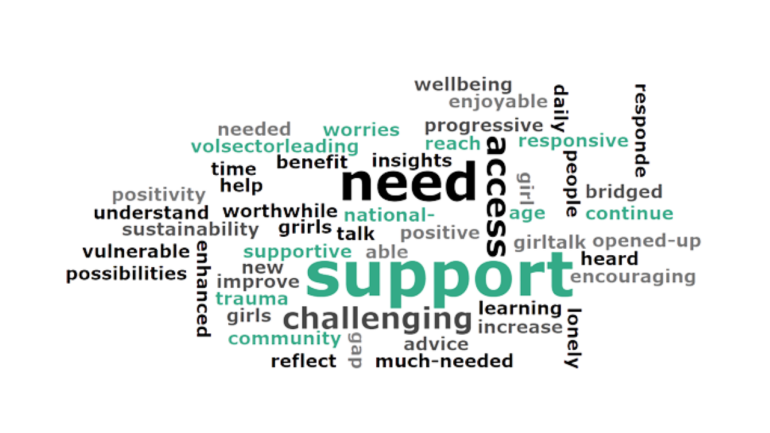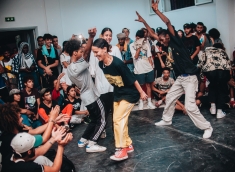Overview
2019-2021
The project aimed to tackle the rising mental health need amongst young women*, aged 16-25, by increasing their access to high-quality, gender-informed, young person-centred services in their local communities.
Aiming to make access and support more equitable, the project worked specifically with young women from typically minoritised groups; those who were living with/at risk of domestic violence, and those who had insecure housing arrangements. By working with 12 delivery partners across England, the project provided targeted support for young women through Youth Information, Advice and Counselling Services (YIACS).
The partners we worked with were:
- Centre 33 - Cambridge
- Croydon Drop-in - Croydon
- GIPSIL - Leeds
- MAP – Norwich
- No Limits – Southampton
- Off the Record - Bristol
- Service Six and Youth Works - Northamptonshire
- Streetwise - Newcastle
- YMCA DownsLink Group - Crawley
- Young Devon - Devon
- YPAS - Liverpool
*When using the term ‘young women’ in this context, we are referring to any young person who identifies as a woman who received support as part of this project.

Impact
Over the course of this two-year project, more than 6,500 young women were supported:
- 11,098 one-to-one casework, advice and support sessions were offered to address a range of social and emotional issues (e.g. housing, benefits, debt and relationships. 3,144 young women attended sessions
- 5,549 assessments and ‘open-ended’ counselling/psychological therapies were offered to 1,379 young women who were struggling with a range of mental health concerns
- Groupwork programmes focused on key areas, such as domestic violence. This included targeted groups for young women from ‘BAME’** and/or LGBTQ+ communities. 859 young women attended group work as part of the project
- Outreach services to ensure the most vulnerable and at-risk young women were continually reached. 1,278 young women were supported by outreach services
- A range of participation opportunities, such as advisory groups and participation in research and volunteering
**We acknowledge that the term ‘BAME’ is perhaps not the most reflective or useful, and know that many people find it problematic. There isn’t currently an agreed phrase across the sector to use when referring to people of colour and those from minoritised groups. As such, here we use the terms ‘BAME’ and ‘minoritised groups’ interchangeably.


